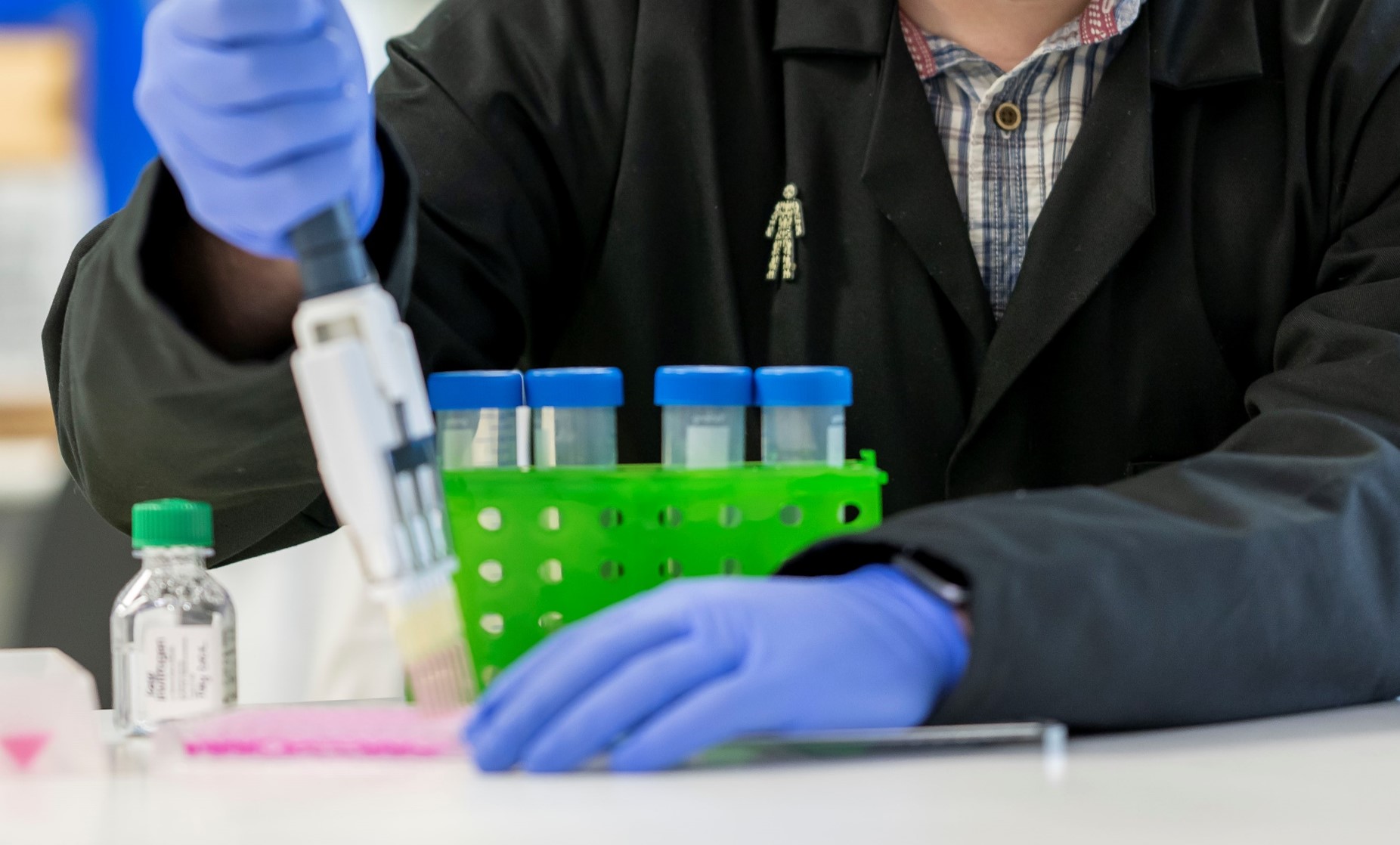
Using 'GPS' molecules to find aggressive prostate cancer

Grant information
Researcher - Dr Ferdia Gallagher
Institution - University of Cambridge
Grant award - £49,930.00
Grant duration - 2015-2020
Reference - PA14-012
We are developing new tools to study how 'fuel' molecules are used in prostate cancer and how this metabolism can be imaged non-invasively in patients. This approach could also help to predict which patients have a higher risk of recurrence of the cancer in the future.
Why did we fund this project?
- In some men, prostate cancer is aggressive, and needs treatment to stop it growing and spreading. Other men have low-risk cancer, and may benefit more from less intense treatment or watchful waiting.
- Being able to use a scan to tell if men have aggressive or low-risk cancer would guide decisions about which treatments will be best, and help men with low-risk disease avoid unnecessary biopsies and side effects.
- Cells use certain molecules as fuel to survive and grow. Metabolism is the process by which cells digest, or metabolise, this fuel.
- Cancer cells grow and divide more rapidly than normal cells, and so they metabolise these fuel molecules very differently. This difference gets bigger as cancer becomes more aggressive.
- Ferdia and team suggested that by measuring these changes in metabolism, they could work out how aggressive prostate cancer is.
- To do this, the team are using a particular fuel molecule, called pyruvate, with a special tag attached, that acts like a GPS. This 'GPS' tag means we can track how cells metabolise the pyruvate using an MRI scan.
- Using this technique, the team aimed to identify unique metabolism 'fingerprints' of cancer cells, that could be used to understand how aggressive a man's cancer is.
Project in a nutshell

- The team aimed to use their technique to identify metabolism ‘fingerprints’ of cancer cells, and how this changed in more aggressive cancers.
- The team wanted to know whether their technique could distinguish aggressive from low-risk prostate cancers.
What did the researchers do?
- Ferdia and team took scans of men with prostate cancer using their new technique. These men later had a prostatectomy as part of their usual treatment.
- The team compared the scans produced by their new technique to the actual prostate tissue taken from the men. The goal was to check if the aggressiveness indicated by the scans aligned with the aggressiveness observed in the actual tissue.
What did the researchers achieve?

- The team found this technique could successfully distinguish low risk disease from aggressive cancers.
- The team also found this technique can help identify patients who are at high risk of their disease coming back after treatment.
- Now, working with colleagues at University College London, the team wish to carry out a larger trial to see how effective this technique is at identifying aggressive prostate cancer in a broader range of men.
How will this benefit men?
- Being able to distinguish more aggressive prostate cancer from low-risk prostate cancer helps guide treatment decisions, and prevent men with low-risk cancer experiencing unnecessary biopsies and side effects.
- The team have also shown their technique may help predict whether cancer is likely to return after treatment. This could help identify men who need further treatment to stop their cancer coming back.
Help us fund more lifesaving research like this...
With your continued support you can help us cure more men with less harm. Take action today and help us work towards a future where men's lives aren't limited by prostate cancer

